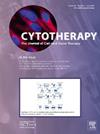智能细胞治疗:巨噬细胞作为活药物的行业前景
IF 3.2
3区 医学
Q2 BIOTECHNOLOGY & APPLIED MICROBIOLOGY
引用次数: 0
摘要
基于巨噬细胞的细胞疗法代表了免疫治疗的前沿,与CAR-T等传统方法相比具有明显的优势。这篇综述探讨了巨噬细胞协调先天和适应性免疫反应的潜力,增强了身体局部和全身对抗疾病的能力。巨噬细胞被称为“智能细胞疗法”,它可以启动和协调复杂的免疫级联反应,利用多种免疫系统成分,同时也发挥效应功能。然而,开发这些疗法仍然面临重大挑战,包括有限的巨噬细胞扩增能力,低效的基因工程,大规模生产的困难,以及证明后期临床成功。尽管存在这些障碍,但正在进行的研究和临床试验表明,基于巨噬细胞的疗法具有巨大的潜力,可以彻底改变从癌症到再生医学等一系列疾病的治疗方法。本文着眼于以工业为主导的发展,回顾了巨噬细胞为基础的细胞疗法的现状,讨论了它们的巨大潜力和必须克服的实质性障碍,以实现其充分的治疗价值。本文章由计算机程序翻译,如有差异,请以英文原文为准。
Smart Cell Therapy: an industry perspective on macrophages as living drugs
Macrophage-based cell therapies represent a cutting-edge frontier in immunotherapy, offering distinct advantages over conventional approaches like CAR-T. This review explores the potential of macrophages to orchestrate both innate and adaptive immune responses, enhancing the body's ability to combat diseases locally and systemically. Dubbed a "Smart Cell Therapy," macrophages can initiate and coordinate complex immunological cascades, leveraging multiple immune system components while also performing effector functions. However, significant challenges persist in developing these therapies, including limited macrophage expansion capacity, inefficient genetic engineering, difficulties with large-scale production, and demonstrating late-stage clinical success. Despite these obstacles, ongoing research and clinical trials indicate that macrophage-based therapies hold immense potential to revolutionize treatment approaches across a spectrum of diseases, from cancer to regenerative medicine. With a focus on industry-led development, this review examines the current landscape of macrophage-based cellular therapies, discussing their promising potential and the substantial hurdles that must be overcome to realize their full therapeutic value.
求助全文
通过发布文献求助,成功后即可免费获取论文全文。
去求助
来源期刊

Cytotherapy
医学-生物工程与应用微生物
CiteScore
6.30
自引率
4.40%
发文量
683
审稿时长
49 days
期刊介绍:
The journal brings readers the latest developments in the fast moving field of cellular therapy in man. This includes cell therapy for cancer, immune disorders, inherited diseases, tissue repair and regenerative medicine. The journal covers the science, translational development and treatment with variety of cell types including hematopoietic stem cells, immune cells (dendritic cells, NK, cells, T cells, antigen presenting cells) mesenchymal stromal cells, adipose cells, nerve, muscle, vascular and endothelial cells, and induced pluripotential stem cells. We also welcome manuscripts on subcellular derivatives such as exosomes. A specific focus is on translational research that brings cell therapy to the clinic. Cytotherapy publishes original papers, reviews, position papers editorials, commentaries and letters to the editor. We welcome "Protocols in Cytotherapy" bringing standard operating procedure for production specific cell types for clinical use within the reach of the readership.
 求助内容:
求助内容: 应助结果提醒方式:
应助结果提醒方式:


